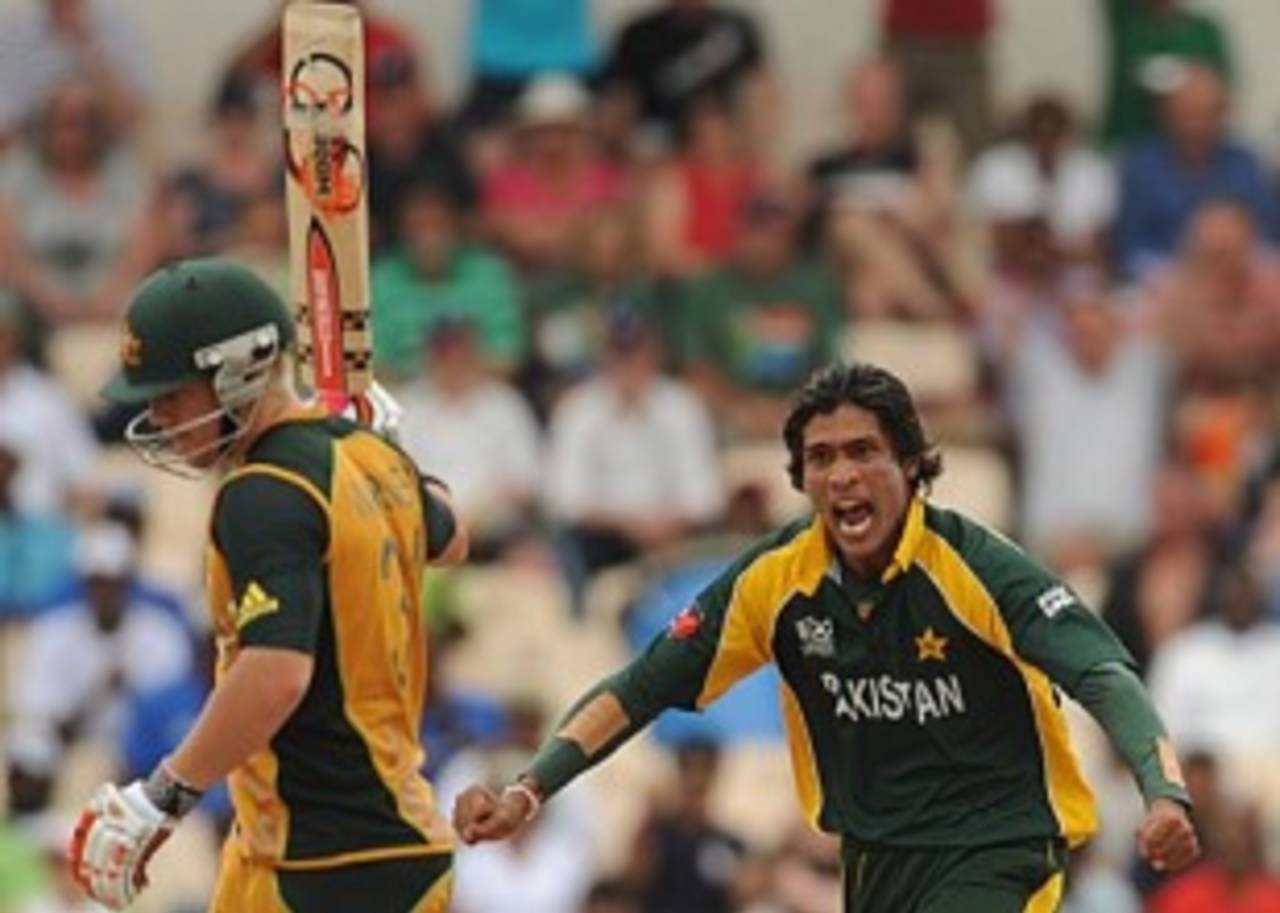The anarcho-syndicalist splendour of Pakistan
If cricket teams were political systems, we know what doctrine Afridi and Co would be
Imran Yusuf
04-Jun-2010

Mohammad Aamer shows off his best anti-authoritarian grimace • AFP
A few days ago Pakistan's captain Shahid Afridi said that "politics" in the team would not be tolerated. Comrade Shahid should know that cricketers from his land - that patch of earth sandwiched like a thin little sliver of cucumber between the two big chunks of cricketing superpower that are India and Afghanistan - have always been political radicals, revolutionaries, smash-the-system types. We don't just wear the Che Guevara t-shirt, we live the life. (Think of all the beards, and also, at least in Zaheer Abbas' case, of the penchant for cigars).
Now, since Pakistani cricketers are humans (though tests are still being done on Shoaib Akhtar) and therefore political animals, we inevitably squabble and scheme and swear oaths on holy books against team captains. I mean, who doesn't? But in the broader sense, Pakistan cricket is about sticking a middle finger up at politics, at government, at authority. If our team was placed in one of those political-spectrum diagrams I remember from PolSci courses at college, it would occupy the part from libertarianism through to full-fledged Molotov cocktail-flinging anarchism.
Just as taxation is theft, Pakistani cricketers see fielding for the good of the team at large as an unfair infringement on their individual rights. Just as it's the faceless monsters we call governments that send us to war to kill each other, Pakistani cricketers recognise the philosophical integrity of never following orders. The state has no right to tell us what to do; neither does Ijaz Butt. Or, for that matter, the team captain. Or even the batting partner at the other end screaming "Yes, yes, dammit, RUN. I said YES! RUN!" How dare he, the fascist.
We've always been a team of individuals, united by a common cause but not out of subjugation to a higher authority. Sometimes those individuals have been brilliant and we have done well. Other times those individuals have been less than brilliant and we have lost to Ireland.
Since Imran Khan retired in 1992, Pakistan have had 14 different Test captains, a clear case of power-sharing and true people power, as is only possible under our anarcho-syndicalist model. Australia, by comparison, have had just four Test captains since Allan Border retired in 1994. The power-hungry, undemocratic capitalist pigs.
My arguments here also put a new spin on our reputation for lawlessness. No, we were not tampering with the ball or fixing matches or taking nandrolone. We were liberating the cricketing masses from the evil tyranny they are too innocent to realise has kept them on their knees for centuries.
We have also contributed much to world cricket through our irreverence and innovation. As is accepted by everyone who knows their history, or more likely everyone who has seen the Apple "Think Different" advert, it is the wackos and freaks and geeks who change things, who take mankind forward. Think of the doosra, reverse-swing, the reverse-sweep (notice the proliferation of "reverse", i.e. turning things back, i.e. Viva La Revolucion). The system does not breed genius. And before you tell me that Australia have the best players in the world and also happen to have the best cricket structure, yes, before you tell me that, I will end this paragraph.
But what is a Pakistani captain to do? Our greatest cricketing success came under the near-dictatorial rule of Imran. Or so one would think. Javed Miandad actually has a better record as Test captain than the great King Khan, yet his premierships were beset by constant chaos and uncertainty.
So tune in to the Asia Cup and then the series in England this summer: the Revolution will most certainly be televised.
Imran Yusuf works for the Express Tribune, an English-language newspaper in Pakistan